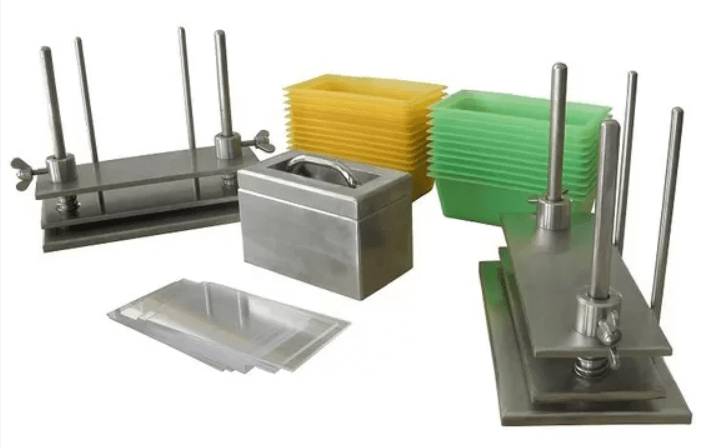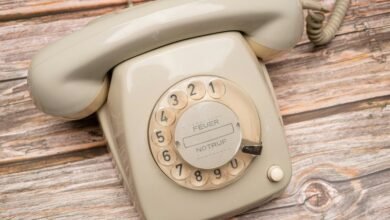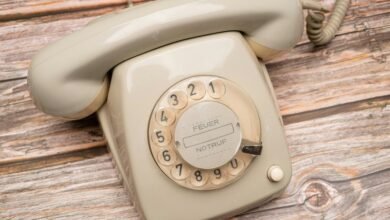Choosing the Right Textile Testing Machine Supplier for Reliable Quality Control

In the competitive textile industry, ensuring fabric quality is crucial for maintaining brand reputation and customer satisfaction. Textile manufacturers, suppliers, and third-party testing labs rely on textile testing machines to evaluate various fabric properties, including strength, color fastness, dimensional stability, and comfort performance. Choosing the right textile testing machine supplier can significantly impact the accuracy, reliability, and efficiency of fabric testing.
In this guide, we will explore key factors to consider when selecting a supplier, the types of testing instruments available, and how a reputable textile testing instrument manufacturer can enhance your quality control process.
1. Why Textile Testing Matters
Textile testing ensures that fabrics meet regulatory requirements and consumer expectations. The testing process helps detect defects early, preventing costly recalls or rejections. Key benefits of textile testing include:
- Regulatory Compliance: Meeting industry standards like ISO, ASTM, AATCC, and GB.
- Enhanced Product Quality: Ensuring durability, color retention, and comfort.
- Cost Savings: Reducing returns, rework, and material wastage.
- Market Competitiveness: Strengthening trust with international buyers.
To achieve these benefits, investing in high-quality testing machines is essential. However, the effectiveness of testing largely depends on the reliability of the textile testing machine supplier you choose.
See also: Ultimate Guide to Types of Heat Sinks: Technology, and How It Works
Why Choosing the Right Textile Testing Machine Supplier Matters
Investing in high-quality textile testing equipment ensures that fabrics and garments comply with international standards such as ISO, AATCC, ASTM, and GB/T. A reliable textile testing machine supplier provides:
- Accurate and repeatable test results: Ensuring consistent fabric quality.
- Compliance with international standards: Helping manufacturers meet regulatory requirements.
- Long-term cost savings: Preventing defects and reducing product returns.
- Improved brand reputation: Guaranteeing high-quality products for consumers.
Choosing a low-quality supplier may lead to unreliable test results, production delays, and increased costs due to machine malfunctions.
2. Key Considerations When Selecting a Textile Testing Machine Supplier
Selecting a reliable supplier involves evaluating multiple factors beyond just pricing. Here’s what to look for:
2.1 Compliance with International Standards
The best suppliers ensure their machines conform to global standards like:
- ISO 105 – Color fastness testing.
- ASTM D5034 – Tensile strength testing.
- AATCC 135 – Dimensional stability after washing.
- ISO 11092 – Thermal resistance and breathability.
Working with a supplier that meets these standards guarantees that your test results will be recognized globally.
2.2 Comprehensive Product Range
A reputable supplier offers a wide selection of textile testing instruments, such as:
- Color Fastness Testers: For light, washing, rubbing, and perspiration fastness.
- Tensile and Tear Strength Testers: For fabric durability assessments.
- Abrasion and Pilling Testers: Evaluating surface wear resistance.
- Moisture Management Testers: Measuring fabric drying and sweat absorption.
- Thermal and Comfort Testing Instruments: Assessing insulation and breathability.
A diverse product range allows you to source all testing needs from one trusted supplier.
2.3 Advanced Technology and Innovation
Modern textile testing relies on automation and digital integration. Leading suppliers provide:
- Smart testing instruments with digital displays and data storage.
- Automated systems that minimize human error.
- Cloud-based data analysis for remote monitoring.
Choosing a supplier that invests in R&D ensures you receive cutting-edge solutions.
2.4 Customization Capabilities
Different textile applications require specific testing setups. The best textile testing machine suppliers offer customization options, such as:
- Adjustable testing parameters to match various standards.
- Multi-functional machines that combine multiple tests.
- Specialized software for data analysis and reporting.
A supplier that provides tailored solutions enhances testing efficiency.
2.5 Strong Technical Support and Training
Effective textile testing requires proper equipment handling. A reliable supplier offers:
- On-site installation and calibration services.
- User training sessions for lab staff.
- Technical support through online guidance or local service centers.
Well-supported machines ensure consistent and accurate test results.
2.6 Global Presence and Reputation
Suppliers with an international presence often have:
- Global distribution networks for fast shipping.
- Certifications from accredited organizations (e.g., SGS, Intertek).
- Positive customer reviews and case studies.
Choosing a reputable supplier minimizes risks associated with poor after-sales support.
3. Leading Textile Testing Instrument Manufacturers
Several well-established manufacturers produce high-quality testing machines. When selecting a , consider brands known for innovation, accuracy, and durability. Some industry leaders include:
3.1 James Heal
- Specializes in fabric and garment testing.
- Known for high-precision instruments and global service.
3.2 SDL Atlas
- Offers a full range of textile testing solutions.
- Provides advanced software integration.
3.3 Uster Technologies
- Focuses on fiber and yarn testing equipment.
- Utilized by spinning mills worldwide.
3.4 Local and Emerging Brands
New suppliers are entering the market with competitive pricing and innovative technology. Some emerging manufacturers provide smart textile testing solutions with IoT connectivity and automated data processing.
4. Future Trends in Textile Testing Instruments
As the textile industry evolves, testing technologies are also advancing. Some key trends include:
4.1 AI-Powered Quality Control
Artificial intelligence is being integrated into textile testing machines for automatic defect detection and predictive analytics.
4.2 Sustainability Testing
With the rise of eco-friendly textiles, new machines are designed to assess biodegradability, recyclability, and chemical impact.
4.3 Smart Sensors and IoT Connectivity
Real-time data collection and remote monitoring are becoming standard features in modern textile testing instruments.
4.4 High-Speed and Multi-Function Machines
Newer models can perform multiple tests simultaneously, reducing testing time and improving lab efficiency.
5. How to Choose the Best Supplier for Your Needs
To find the ideal textile testing machine supplier, follow these steps:
- Define Your Testing Requirements: Identify which fabric properties you need to test.
- Compare Supplier Offerings: Evaluate product range, features, and compliance.
- Assess Technical Support: Check warranty, training, and after-sales services.
- Read Customer Reviews: Look for feedback from industry professionals.
- Request a Demo: Testing a machine before purchase ensures it meets your needs.
Conclusion
Selecting the right textile testing machine supplier is crucial for ensuring accurate, efficient, and reliable fabric testing. A reputable textile testing instrument manufacturer provides high-quality machines that comply with international standards, integrate advanced technology, and offer strong customer support. By considering factors such as compliance, product range, innovation, and technical service, you can make an informed decision that enhances your textile quality control processes.
Investing in advanced textile testing equipment not only improves fabric performance but also strengthens your competitive advantage in the global market. Whether you’re a fabric manufacturer, apparel brand, or third-party lab, choosing a trusted supplier will ensure long-term success in textile quality management.





